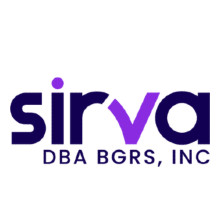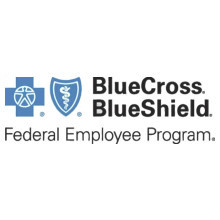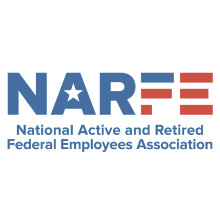BYLAWS
OF
SENIOR EXECUTIVES ASSOCIATION, INC.
Preface: These Bylaws amend and revise all prior Bylaws of the Senior Executives Association, Inc.
ARTICLE I
NAME AND OFFICE
Section 1. Name. The name of this corporation is the Senior Executives Association, Inc. (the “Corporation”).
Section 2. Principal Office. The Corporation’s principal office and other offices may be either within or outside the District of Columbia, as the Board of Directors (Board) may from time to time determine.
ARTICLE II
PURPOSE
The Corporation is established to promote the common interests of its members by engaging in activities that: (1) advance members’ professionalism and protect their employment rights in the Federal government; (2) improve the efficiency, effectiveness, and productivity of the Federal government; and (3) enhance public recognition of its members’ contributions to the Federal government.
ARTICLE III
MEMBERSHIP
Section 1. Classes of Membership.The Corporation shall have three (3) classes of membership: (1). Voting Members; (2) Associates; and (3) Rising Leaders.
Section 2. Voting Members. Any person is eligible for Voting Membership if they meet one of the following eligibility requirements:
A. Current or former member of the Federal Government’s Senior Executive Service (SES),Senior Level (SL), or Senior Scientific orProfessional (ST) corps and their respective equivalents,
B. Current or former GS-15 or equivalents whose responsibilities are equivalent to those of a member of the Senior Executive Service asapproved by the Board of Directors.
C. Current or former GS-14, GS-15, or equivalents who has completed a certified SES Candidate Development Program approved by the Office of Personnel Management or equivalent program as approved by the Board of Directors.
A Voting Member must comply with all terms and conditions of membership as may be set forth in these Bylaws, the Corporation’s Articles of Incorporation (the “Articles”), or as established by the Corporation’s Board of Directors. No Voting Member shall have the right to vote unless their dues are paid in full.
Section 3. Associates. Associates are non-voting members who do not qualify for membership under section two of this Article. Associates must comply with all terms and conditions of membership as may be set forth in the Bylaws or the Articles, or as established by the Corporation’s Board. Associate membership categories, whether as set forth in these Bylaws or by a resolution of the Board, are subject to change or elimination by the Board at any time.
A. Eligibility for Associate Membership
1. Regular Associates. Regular Associates shall be any GS-14 or GS-15 or equivalent.
2. Honorary Associates. The Board may offer Honorary Associate membership to any individual who has made outstanding contributions to the Corporation, but who is not otherwise eligible for membership.
Section 4. Rising Leaders. Rising Leaders shall be any GS-12 or GS-13 who do not qualify for membership under sections two or three of this Article. Rising Leaders are non-voting members. Rising Leaders; must comply with all terms and conditions of membership as may be set forth in the Bylaws or the Articles, or as established by the Corporation’s Board. Rising Leader membership, whether as set forth in these Bylaws or by a resolution of the Board, are subject to change or elimination by the Board at any time.
Section 5. Application for Membership. Application for membership shall be submitted in a form prescribed by the Board.
Section 6. Resignation. Membership in the Corporation shall automatically terminate on receipt of a written request by the member. Resignation shall not relieve the member from paying any outstanding indebtedness due to the Corporation; and there is no entitlement to a refund of any portion of their annual dues payment.
Section 7. Suspension and Termination. A member may be suspended or terminated by: (1) the Board of Directors, for conduct determined in its sole discretion, to be prejudicial to the Corporation’s purpose and objectives or (2) the President, in consultation with the Board Chair, for failure to pay dues within ninety (90) calendar days after their renewal date. Pursuant to the District of Columbia Nonprofit Act of 2010 (the Act) Section 29-404.21, only a Voting Member may challenge their suspension or termination; any such proceeding must begin within one (1) year from the effective date of their suspension or termination.
A. Suspension. A member will be suspended until either the issue precipitating their suspension is resolved or for a stated period as determined by the Board. During the suspension period, a Voting Member shall forfeit all rights and privileges of membership, including, without limitation, the right to vote and non-voting members shall forfeit their respective benefits and privileges of membership.
B. Termination. Upon their termination, a Voting Member shall no longer have any rights as a member ofthe Corporation and an Associate or Rising Leader shall no longer have any right to benefit from participation in the Corporation.
The suspension or termination of a member shall not relieve them from any obligations incurred or commitments made prior to their termination or suspension. A terminated member may be reinstated at the Board’s discretion.
Section 8. Voting Rights. Only a Voting Member, who is in good standing, has voting rights. They are entitled to one (1) vote on each matter voted on.
Section 9. Dues. Voting Members, Regular Associates, and Rising Leaders are required to pay annual dues as established by the Board. If any dues paying member is unable to pay their dues because of financial reasons, they may request a waiver, in writing, to the Board. Any dues assessments paid to the Corporation become the property of the Corporation and any severable or individual interest of any class of member in dues and assessments paid terminates on such payment.
Section 10. Transferability of Membership Interest. As contemplated in Section 29–404.11(a) of the Act, membership, or participation, in the Corporation is nontransferable and non-assignable. Any attempt to transfer a membership or participation right shall cause such membership or participation to terminate automatically.
Section 11. Individual Liability. No member shall be individually liable for any debt, obligation, or liability of the Corporation by virtue of that membership.
Section 12. Compensation of Members. No member shall be compensated solely based on their membership in the Corporation. Any member rendering services to the Corporation, however, may receive reasonable compensation for such services, as determined by the Board.
ARTICLE IV
Meetings of Voting Members
Section 1. Annual Meetings. Annual meetings of the Corporation shall be held to transact business as proposed by the Board at a time and place, either virtually or in-person, as determined by the Board. Subject to the Articles, these Bylaws and the Act, the Board of Directors shall create the agenda (the “Agenda”) for each annual meeting. Voting Members wishing to propose items of business to be discussed at the meeting must make a request in writing to the Board within 30 days in advance of the scheduled meeting.
Section 2. Special Meetings. Aspecial meeting may be called at any time by a simple majority of the Board of Directors, or ten percent of Voting Members in good standing. The special meeting shall be held at a time and place, either virtually or in-person, as determined by the Board. Only business described in the notice of a special meeting shall be transacted at the meeting.
Section 3. Notices. Notice of the time and place of each annual or special meeting of the Corporation shall be served by mail or electronic mail. The notice will be provided not less than ten (10) calendar days, but not more than sixty (60) calendar days, prior to the scheduled meeting. The notice of the meeting will describe the purpose for which it is to be held, including items subject to decision of the Voting Membership. Notice of each meeting shall be accompanied by a proxy appointment form.
Section 4. Waiver of Notice. The requirement to receive notice of each annual or special meeting shall be waived by a Voting Member who signs a waiver of notice before or after the meeting. However, attendance at any meeting by a Voting Member shall constitute a waiver of notice of the meeting, excepting such attendancefor the purpose of objecting to the meeting’s legality.
Section 5. Eligibility to Receive Notice. After fixing a date for a meeting, the Corporation shall determine Voting Members entitled to notice (Membership List) based on the Record Date established by the Board. The Record Date shall not be more than 70 days before the meeting or action requiring decision by the membership. The Membership List shall contain an alphabetical listing of the names of Voting Members, including their addresses, both physical and electronic, and number of votes each Voting Member is entitled to cast at the meeting. When members decide to vote by proxy, those votes will be recorded to have been cast by the authorized official on their behalf in the meeting minutes (See Section 10 below). The Membership List shall be available for inspection at the Corporation’s principal office by any Voting Member, beginning two (2) business days after the record date of the meeting and until the meeting is called to order.
Section 6. Virtual Meetings. Pursuant to Section 29–405.01(e) of the Act,meetings of the Voting Members may be held by electronic communication technology (“virtual meetings”) where the Voting Members have opportunity to read or hear the proceedings substantially concurrently with their occurrence, vote on matters submitted to the Voting Members, pose questions, and make comments.
Section 7. Quorum. At any meeting of the Corporation unless otherwise provided by law or these Bylaws, five (5) percent of the Voting Members in good standing, either in person or by proxy, shall constitute a quorum for all purposes. If a quorum is not present, discussion may continue, but no business can be transacted that would require decisions to be made (See Robert’s Rules of Order).
Section 8. Voting. Only Voting Members in good standing shall have the right to vote at a meeting of the Corporation. Votes shall be cast by voice, written ballot, or electronic means. Once cast, a ballot shall not be revoked. Unless otherwise provided herein, an affirmative vote of a simple majority of the quorum shall be required to act or make a decision.
Section 9. Voting by Ballot. Any action that may be taken at an annual or special meeting of the Voting Members may be taken without and in lieu of a meeting, if a ballot, whether electronic or paper, is distributed to the Voting Members. Action by ballot shall be subject to the same rules of voting at meetings.
Section 10. Proxy Voting. Each Voting Member shall be entitled to vote by proxy allowing for the delegation of voting power to a person or persons named by the Board of the Directors. A proxy must clearly identify the Voting Member's vote as to each issue to be decided at the meeting. All proxies must be provided to the Secretary at least twenty-four (24) hours prior to the scheduled meeting. The Secretary shall keep a copy of each proxy vote in the corporate records.
ARTICLE V
Board of Directors
The Corporation’s management shall be vested in a Board of Directors. The Board shall establish the guiding policies and fiscal controls that govern the functioning of the Corporation. It shall have power to employ necessary staff and other assistance, authorize expenditures, and to take all necessary legal acts to carry out the Corporation’s purposes in conformance with the Articles, Bylaws, and the Act.
Section 1. Number of Directors, Eligibility and Terms.
A. Number of Directors. The Corporation’s Board of Directors shall consist of no less than three (3) and no more than fifteen (15) elected Directors. Within these limits, the specific number shall be established from time to time by resolution of the Board of Directors. No decrease in the established number of Directors shall have the effect of shortening the term of any incumbent Director.
B. Eligibility: Only a Voting Member, who has been a member in good standing for more than a year, shall be eligible for election to the Board. Once elected to the Board and annually until the end of their term, each Director shall complete and sign all documents as required by Corporation’s Policy and Operating Guidance.
C. Terms. Each Director will be elected for a term of three (3) years, and until their successor has been elected and qualifies, or until their earlier resignation, removal, or disqualification. A Director shall serve no more than three consecutive terms or nine years total spread over multiple terms. Terms shall begin on November 1 (Commencement Date) and terminate on October 31 three years subsequent, unless as specified in Section 2 below. Terms of Directors will be staggered into groups of no more than five Directors.
Section 2. Vacancies. A Board vacancy shall exist when the number of Directors is less than the maximum number of Directors specified aboveor at a number set by Board resolution. If the Board chooses to fill a vacancy, the Board will fill the vacancy as follows:
A. The nominee with the next highest number of votes from the most recent Board of Directors’ election, will be selected to fill the remainder of the term vacated. If there are additional vacancies, the process will be repeated with the nominee with the next highest number of votes selected.
B. The term of a Director elected to fill a vacancy under provision A of this section shall expire at the end of the unexpired term that the Director is filling.
C. If a scheduled Board of Directors election will occur within ninety (90) days of the vacancy, the vacancy may remain open until it is filled by the Voting members through the usual voting process.
Section 3. Nomination and Election of Directors. One third of the Board seats will be filled annually. The annual election of new Directors shall follow the process and timeline set forth in the Corporation’s Policy and Operating Guidance.
Section 3. Resignation. A Director may resign at any time by delivering a signed notice to a member of the Board’s Executive Committee. The resignation shall be effective when the notice is delivered unless the notice specifies a later effective date.
Section 4. Removal of Directors. Voting Members may remove for cause, by a two-thirds vote, one or more Directors elected by the Voting Members. Pursuant to Section 29-406.08 of the Act, the Board, by a vote of two-thirds of the Directors in office, may remove a Director for cause.
Section 5. Compensation. Directors shall not receive any compensation. However, by a vote of the majority of Board members, the Board shall preauthorize and reimburse expenses incurred in the Director’s performance of services for the Corporation including, but not limited to, attendance at annual, regular or special meetings of the Corporation. Nothing herein shall be construed to preclude any Director from serving the Corporation in a capacity, other than as an officer, and receiving compensation for such service, as determined by a majority vote of the Board.
ARTICLE VI
MEETINGS OF THE BOARD OF DIRECTORS
Section 1. Regular Meetings. Regular meetings of the Board shall be held at least four times each year at such time and place designated by the Chair. The Board may provide by resolution the time and place for the holding of additional regular meetings of the Board without notice other than by resolution. At least one of these meetings should be in-person, if possible.
Section 2. Special Meetings. Special meetings of the Board may be called by the Chair or three Directors.
Section 3. Notice.
A. Regular Board Meetings. Regular meetings of the Board shall be held with a ten-day notice of the date, time, place, and purpose of the meeting by electronic mail to each Director as reflected in the Corporation’s records. At the beginning of each fiscal or calendar year, the Corporation may provide a single notice of all regularly scheduled meetings for that year, or for a lesser period, without having to give notice of each meeting individually.
B. Special Board Meetings. Notice of any special meeting shall be given at least one calendar day prior to the meeting, and by written notice sent by electronic mail to each Director at their address as reflected in the Corporation’s records. The notice shall include the date, time, purpose, and place of the meeting.
Section 4. Waiver of Notice. Any requirements of furnishing a notice under the provisions of the Act, Bylaws or the Articles, shall be waived by any Director who signs a waiver of notice before or after either a regular or special meeting. Such notice must be filed with the minutes or corporate records. However, attendance at any regular of special meeting by a Director shall constitute a waiver of notice of such meeting, as provided by Section 29–406.23 of the Act.
Section 5. Quorum. At all meetings of the Board of Directors, a majority of Directors in office before the meeting begins shall be necessary and sufficient to constitute a quorum for the transaction of business. The act of majority of the Directors present at any meeting at which there is a quorum shall be the act of the Board. Voting by proxy is prohibited. If at any meeting there is less than a quorum present, a majority of those present shall adjourn the meeting to another time and place and notice given to the Directors who were not present at the time of adjournment.
Section 6. Action Without Meeting. Any action required or permitted to be taken at a meeting of the Board may be taken without a meeting if a consent in writing, setting forth the action to be taken, shall be signed by all of the Directors in office. Suchwritten consentsshallbe filed withtheminutesoftheproceedingsoftheBoard. Suchwrittenconsentsshallhavethesameforceand effectastheunanimousvote of suchDirectors. Such written consents may be in electronic form and delivered by electronic means.
Section 7. Virtual Meetings. In conformity with Section 29–405.01(e) of the Act,meetings of the Board of Directors shall be held by means of electronic communications technology (“virtual meetings”) where the Directors have the opportunity to read or hear the proceedings substantially concurrently with their occurrence.
Section 8. Emergency Powers. If a quorum of the Board cannot be readily assembled because of some catastrophic event, the Board may exercise such emergency powers as are authorized by the District of Columbia Official Code Title 29 (Business Organizations) Enactment Act of 2010 or its successor.
ARTICLE VII
STANDING AND SPECIAL COMMITTEES
Section 1. Standing Committees. The Board shall have three Standing Committees, as identified below. The Board may establish additional Standing Committees, from time to time, as necessary. Except for the Treasurer, who may concurrently serve on the Executive Committee and the Finance Committee, a Director serving on a Standing Committee shall not concurrently serve on another Standing Committee. Each Standing Committee will maintain minutes and report their activities to the Board on a regular basis.
A. Executive Committee.
1. The Executive Committee shall consist of a Chair, Vice Chair, Secretary and Treasurer and such other officers as may be deemed necessary, from time to time, by a majority vote of the Board.
2. The Executive Committee shall:
a. Serve as the central planning group for the Corporation and as an advisory group to the President; and
b. Recommend opportunities for strategic and operational improvements of the Corporation to the Board.
3. All Executive Committee actions are subject to the approval of the Board, by a simple majority vote. Executive Committee members may participate in such votes in their capacity as Board Members.
4. The Executive Committee shall be empowered, between meetings of the Board, to implement policy, or in unusual cases, act on behalf of the Board, subject to subsequent notification of their actions to the Board.
B. Finance Committee.
- The Committee shall be chaired by the Treasurer and consist of at least two other Directors.
- The Finance Committee shall:
a. Establish general policy regarding compensation for the President and other professional staff.
b. Oversee the President and other professional staff in the development and review of the Corporation’s annual budget, internal financial controls, investments, and grants, and any such matters that relate to the fiduciary responsibilities of the Corporation.
c. Provide the Corporation’s annual budget to the Board for its approval.
d. On an annual basis, review the Corporation’s investments and reserve accounts and the performance thereof, contracts, and insurance policies and brief the Board, accordingly, included making recommendation on the modification of investment or reserve strategy as needed.
e. Oversee the independent auditor.
B. Nominating Committee.
1. The Nominating Committee will be appointed by the Board Chair, with the concurrence of the Board, and shall consist of a Chair and at least two other Directors.
2. Each year, the Nominating Committee shall develop a “Nominating Slate” to fill Board vacancies. In creating the Nominating Slate, the Committee shall:
a.Propose nominees with different backgrounds, skills, opinions, and perspectives to ensure the Board represents the diversity of the Senior Executive Service,and,
b.Present to the Board both a preliminary list of candidates and recommended Nominating Slate, with a written explanation for why each candidate was or was not recommended for the Nominating Slate.
Section 2. Special Committees.
A. The Board may establish, by a majority vote, Special Committees for a specific time and task. The Board may change the membership, appoint, and remove members, or dissolve a Special Committee at any time by any method determined by a majority vote of the Board.
B. Special Committees will consist of at least one or more Directors. The Board of Directors shall appoint the Chairperson of each Special Committee.
C. A SpecialCommittee shall exercise such authority as authorized by the Board and consistent with their Charters. Special Committees do not have authority to make decisions on behalf of the Corporation and shall be restricted to making recommendations to the Board and implementing Board decisions and policies under the supervision and control of the Board.
Section 3. Board Chair’s Committee Role.
A., The Board Chair may attend, in an “ex-officio non-voting capacity, any Committee meeting other than meetings of the Nominating Committee. The Chair is permitted to vote on all Standing and Special Committee (hereinafter, “Board Committee”) issues that come before the full Board.
B. Notwithstanding any other provision in these Bylaws, the Chair shall be permitted to serve as a voting member of the Executive Committee.
Section 4. Term. Board Committee members serve at the pleasure of the Board.
Section 5. Meetings. Meetings of a Board Committee may occur at a time and place determined by the Committee Chair, including by telephone and electronic means. Notice of a Board Committee meeting shall be given at least one calendar day prior to the meeting, and by written notice delivered personally or sent by electronic mail to each Board Committee member. The Notice shall include the date, time, purpose, and place of the Board Committee meeting.
Section 6. Quorum. A majority of members of a Board Committee shall constitute a quorum. Any action of the majority at a Board Committee meeting at which a quorum is present shall be deemed the action of the Board Committee. Voting by proxy is prohibited.
ARTICLE VIII
ADVISORY COMMITTEES
The Board may establish one or more Advisory Committees. An Advisory Committee may include Directors, Voting and non-voting members, members of the Corporation’s Corporate Advisory Council, and subject matter experts. Advisory Committee members may be appointed as the Board determines, based on the Advisory Committee’s purpose. Each Advisory Committees will be chaired by a Board Director. Advisory Committees do not have authority to make decisions or act on behalf of the Corporation and may only make recommendations to the Board or its Committees. Any actions taken by an Advisory Committee, including implementing Corporation decisions and policies shall be under the supervision and control of the Board or its Committees.
ARTICLE IX
OFFICERS
Section 1. Officers. The officers of the Corporation shall be a Chair, Vice Chair, Secretary, Treasurer, and such other officers as may be deemed necessary to further the Corporation’s objectives. An officer shall be a Director and only hold one office at a time. Each officer shall have the authority to perform duties as provided by the Articles, Bylaws, and the Act.
Section 2. Election. The officers of the Corporation shall be elected, by a majority vote of the Board, even if they constitute less than a quorum, and at a regular Board meeting. In the event of an officer vacancy, the position will be filled by a majority vote of the Board, even if they constitute less than a quorum at a regular or special Board meeting.
Section 3. Term. Each officer shall serve a two-year term or until their successor is elected, their term as a Director ends, or until their resignation, removal, or incapacitation. The term of an officer elected to fill a vacant officer position shall expire at the end of the unexpired term that the officer is filling.
Section 4. Resignation. An officer may resign at any time by giving written notice to the Chair or Secretary. Such resignation shall be effective upon receipt of the notice by the Chair or Secretary or at a time specified in the written notice.
Section 5. Removal. An officer may be removed by a two-thirds vote of the Directors in office, for any reason if, in the Board’s judgment, the best interests of the Corporation would be served.
Section 6. Chair. The Chair shall be the Corporation’s chief officer and shall preside at all duly called annual and special meetings of the Corporation and regular and special meetings of the Board of Directors. The Chair shall have general supervision of the Corporation’s business and affairs and shall have such other duties as may be determined from time-to-time by the Board of Directors. The Chair must be a current or former SES, ST, SL or equivalent senior leader in their organization.
Section 7. Vice Chair. The Vice Chair shall, in the absence or disability of the Chair, perform the duties of that office, and perform other duties as the Board may prescribe. Should the office of Chair become vacant, the Vice Chair shall perform its duties until the Board of Directors has acted to elect a new Board Chair. The Vice Chair must be a current or former SES, ST, SL, or equivalent senior leader in their organization.
Section 8. Treasurer. The Treasurer is the Corporation’s chief financial officer and shall:
Chair the Finance Committee,
A.Develop, review, and oversee the Corporation’s annual budget, internal financial controls, investments, and grants, contracts, and any such matters that relate to the fiduciary responsibility of the Corporation in conjunction with the President and other professional staff,
B.Ensure that full and accurate accounts of receipts and disbursements are kept in records belonging to the Corporation,
C.Ensure that all monies and other assets of value, as appropriate, are deposited in the name and to the credit of the Corporation in such depositories as may be designated by the Board of Directors,
D. Ensure a report of the Corporation’s financial condition is presented at each regular meeting of the Board,
E.Establish reserve funds, as appropriate, subject to a reserve policy that may be created by the Board,
F.Invest funds subject to an investment policy that may be created by the Board, and
G.Perform other duties as directed by the Board or the Chair.
The financial records, papers, vouchers, money, funds, and other property of whatever kind belonging to the Corporation and in the possession or control of the Treasurer shall, at all times, be subject to the inspection, supervision, and control of the Board and Chair. At the expiration of their term of office, the Treasurer shall turn over to their successor all financial records, papers, vouchers, money, and other property of whatever kind in their possession or under their control.
Section 9. Secretary. The Secretary shall:
A. Attend all meetings of the Board of Directors and annual and special meetings of the Corporation, and ensure the recording of all votes and minutes of all proceedings,
B.Ensure that proper notice is provided for all meetings of the Corporation and Board.
C. Maintain custody of the corporate seal and corporate records,
D.Supervise all such books and records that shall, as prescribed by law, be open for inspection,
E.Perform other duties incident to the office, subject to the control of the Board of Directors and shall perform such other duties as may be assigned by the Board.
The books, records, and papers in the possession of the Secretary shall, at all times, be subject to the inspection, supervision, and control of the Board and the Chair. At the expiration of their term of office, the Secretary shall turn over to their successor in office all books, records, papers, and other properties of the Corporation.
Section 10. Other Officers . Other officers elected or appointed by the Board shall perform such duties and have such powers as shall be assigned to them by the Board of Directors.
Section 11. Delegation of Duties. The officers of the Corporation may delegate specific management duties to a “President” and/or any persons or corporate entities with whom the Corporation has contracted for such management purposes (Contractors), subject to the discretion and control of the Board. The President and/or Contractors, subject to the Chair’s approval, may attend meetings of the Board of Directors, Executive Committee, Board Committees (except for the Nominating Committee), and Advisory Committees, in ex-officio, non-voting status.
ARTICLE X
PRESIDENT
The Board may, by a majority vote, hire a President. The President shall not be a Director of the Corporation. The President’s performance and compensation will be reviewed annually by the Board or more frequently, as needed.
The President’s duties, subject to the direction of the Board of Directors and appropriate officers of the Corporation include, but are not limited to:
A.Provide overall supervision of staff activities and Corporation programs; be responsible to the Board of Directors for the quality of the Corporation’s services and for the maintenance of strong relationships with government and other associations,
B. Be responsible for establishing and maintaining appropriate flow of information between the Board of Directors and the membership,
C. Oversee the establishment, timely recording and maintenance of such books and records required by the Act, Articles, Bylaws or as the Board of Directors may determine from time to time,
D. Develop and recommend policies, procedures, practices, and programs for furthering the interests and beneficial results of the Corporation,
E. Assist the Executive Committee and Board in carrying out their respective duties,
F. Serve as the chief representative and spokesperson of the Corporation to the Executive and Legislative branches of the Federal Government, other associations, and the Federal community.
G. Have such other duties and powers as may from time to time be determined by the Board of Directors.
ARTICLE XI
INDEMNIFICATION AND INSURANCE
Section 1. Limitation on Liability. Notwithstanding any provision to the contrary, the real and personal property of the Corporation’s members and employees shall not be available to satisfy any of the Corporation’s debts and legal liabilities.
Section 2. Indemnification. The Corporation shall indemnify a Director or Officer to the extent the Director or Officer was successful, on the merits or otherwise, in the defense of any proceeding, to which the Director or Officer was a party in their official capacity, against reasonable expenses incurred by the Director or Officer in connection with the proceeding.
Section 3. Limitations on Liability of Directors, Volunteers, and Employees.
A. A Director shall not be liable to the Corporation or its members for any decision to take or not take action, or any failure to take any action, excepted as provided in the Act. Provided the Corporation maintains liability insurance with a limit of coverage of not less than $200,000 per individual claim and $500,000 per total claims that arise from the same occurrence, any person who serves as an officer, director, or other person who performs services for the Corporation and who does not receive compensation other than reimbursement of expenses for those services (a “volunteer”), shall be immune from civil liability except as provided in the Act. The Corporation shall be liable for the conduct of a volunteer only to the extent of the applicable limit of insurance coverage it maintains.
B. The Corporation may purchase and maintain insurance on behalf of any employee for performing services or duties in their official capacity during the twelve (12) months preceding the act or omission for which liability was imposed, except as provided in the Act. This limitation shall not apply to any licensed professional employee operating in their professional capacity. The Corporation shall be liable for the conduct of an employee only to the extent of the applicable limit of insurance coverage it maintains, if any.
Section 4. Severability. Every provision of this Article is intended to be severable, and if any term or provision is invalid for any reason whatsoever such invalidity shall not affect the validity of the remainder of this Article.
Section 5. Prohibition Against Self-Dealing. Anything contained in this Article to the contrary notwithstanding, the Corporation shall not indemnify any person if such indemnification would constitute “self-dealing” as defined in Section 4941 of the Code.
ARTICLE XII
AUDIT AND FINANCIAL REVIEWS
The Board shall hire an independent auditor at least every five (5) fiscal years to conduct an audit of the Corporation’s books and accounting records.
A review of the Corporation’s books will be conducted annually on a fiscal year basis for those years when an audit is not conducted.
ARTICLE XIII
GENERAL PROVISIONS
Section 1. Corporate Seal. The Corporation’s corporate seal shall be in such form as the Board shall describe. The presence or absence of the seal on any instrument shall not affect the character, validity, or legal effect of the instrument in any respect. The custody of the seal shall be with the Secretary and they should have authority to affix the seal to all instruments where its use is required.
Section 2. Execution of Instruments. All checks and demands for money and notes of the Corporation shall be signed by such officer or officers or such other person or persons as the Board of Directors may from time to time designate. In the absence of a Board determination, such instruments shall be signed by the Chair and Treasurer.
Section 3. Fiscal Year. Except as altered by a resolution by the Board, the fiscal year shall begin on November 1 and end on October 31 of each year, and be from November 1 through October 31 of the subsequent year.
Section 5. Registered Agent. The Corporation shall have and continuously maintain in the District of Columbia a registered agent as required by the Act and other applicable law.
ARTICLE XIV
AMENDMENT OF BYLAWS
Section 1. Amendment by Members. Any proposal for amendment, repeal or alteration of these Bylaws, in whole or in part, that includes any provision requiring member approval under the Act, shall first be considered by the Board of Directors. Upon the affirmative vote of a majority of Directors then in office, the proposal may thereafter be adopted at a meeting of the voting members or by written assent in accordance with Article IV of these Bylaws.
Section 2. Amendment by Board of Directors . Except as described in Section 1, any proposal for amendment, repeal, or alteration of these Bylaws, in whole or in part, shall be referred to the Executive Committee. The Executive Committee will consider the proposal and make a recommendation to the Board of Directors at least fifteen days prior to the date of a regular or special Board meeting where the proposal will be considered. The proposal shall be adopted by the affirmative vote of at least two-thirds of the Directors then in office. The text of any amendment so enacted shall be provided to the Voting Members, along with an explanation of its basis within 60 days of enactment.
SECRETARY CERTIFICATION
I HEREBY CERTIFY that the foregoing is a full, true and correct copy of the Amended and Restated Bylaws of the Senior Executives Association, Inc., a District of Columbia nonprofit organization, as adopted by such corporation’s Board of Directors on July 2, 2021 and in effect on the date hereof.
IN WITNESS WHEREOF, I have hereunder subscribed my name on this 5th day of July 2021.
Maxanne Witkin
Maxanne Witkin
Secretary












